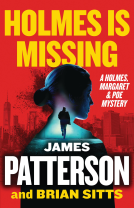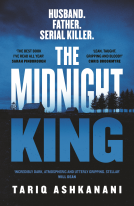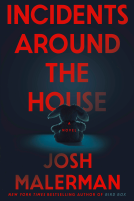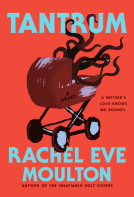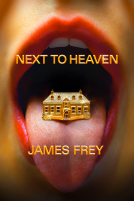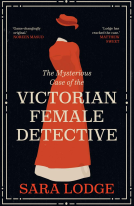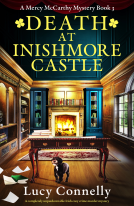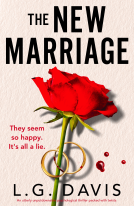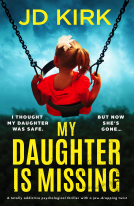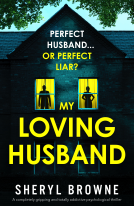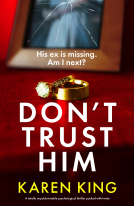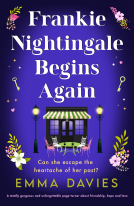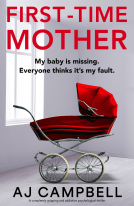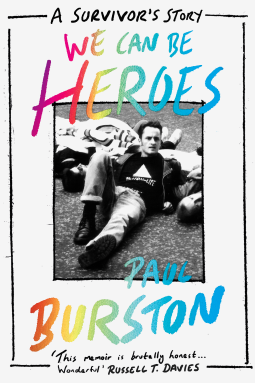
We Can Be Heroes
A Survivor's Story
by Paul Burston
This title was previously available on NetGalley and is now archived.
Send NetGalley books directly to your Kindle or Kindle app
1
To read on a Kindle or Kindle app, please add kindle@netgalley.com as an approved email address to receive files in your Amazon account. Click here for step-by-step instructions.
2
Also find your Kindle email address within your Amazon account, and enter it here.
Pub Date Jun 01 2023 | Archive Date Jun 15 2023
Amazon Publishing UK | Little A
Talking about this book? Use #WeCanBeHeroes #NetGalley. More hashtag tips!
Description
"This memoir is brutally honest… Wonderful!" – Russell T. Davies
Activist. Journalist. Survivor. One man’s journey from prejudice to Pride.
Paul Burston wasn’t always the iconic voice of LGBTQ+ London that he is today. Paul came out in the mid-1980s, when ‘gay’ still felt like a dirty word, especially in the small Welsh town where he grew up. He moved to London hoping for a happier life, only to watch in horror as his new-found community was decimated by AIDS. But even in the depths of his grief, Paul vowed never to stop fighting back on behalf of his young friends whose lives were cut tragically short.
It’s a promise he’s kept to this day. As an activist he stormed the House of Commons during the debate over the age of consent. As a journalist he spoke up for the rights of the community at a time of tabloid homophobia and legal inequality. As a novelist he founded the groundbreaking Polari Prize.
But his lifestyle hid a dark secret, and Paul’s demons—shame, trauma, grief—stalked him on every corner. In an attempt to silence them, he began to self-medicate.
From almost drowning at eighteen to a near-fatal overdose at thirty-eight, this is Paul’s story of what happened in the twenty years between, and how he carved out a life that his teenage self could scarcely have imagined. Emotional but often witty, We Can Be Heroes is an illuminating memoir of the eighties, nineties and noughties from a gay man who only just survived them.
A Note From the Publisher
Paul’s writing has appeared in the Guardian, the Sunday Times and many other publications. He has also written and presented documentaries for Channel 4 and is a regular contributor to TV and radio. Paul Burston is the author of six novels and five non-fiction books and the editor of two short-story collections.
Available Editions
| EDITION | Other Format |
| ISBN | 9781662501050 |
| PRICE | £8.99 (GBP) |
| PAGES | 320 |
Available on NetGalley
Featured Reviews
Burston's generation of gay men and lesibans are the giants upon whose shoulders today's queer youth stand, and this book sets out his acheivements and struggles in unflinching, compassionate, angry and often blacky comic detail. I felt the stickiness of club floors under my feet and the breath of police officers on the back of my neck as I read. An urgent, unmissable read.
I know and love Paul Burston, and now I get to know and love his book too! Driven by the need to get out of his small Welsh town and, later, driven by a sense of mortality brought on by the ravages of HIV/Aids in the community, Burston had achieved a great deal by the age of thirty. Described as the 'enfant terrible' of gay UK journalism, he was also regularly off his face on an impressive amount of chemicals. Some constants kept him afloat - the love of his mother, cousin Elaine, sister Jac and 'Auntie' Alma - and his love of David Bowie, which kept him going for years (and still does).
London's favourite salonniere comes of age towards the end of the book, having therapy for his substance use and traumatic past. Towards the end, as he mellows out very slightly, you also get a sense, though he doesn't blow his own trumpet (oo-er) of Burston's generosity, of which I have been a beneficiary as part of his Polari crew since about 2010.
He was going through a tough time then too but you'd never know it; his commitment to his literary salon and dogged pursuit of a literary career, even when struggling with losing agents and publishers and in one case, being too chemically altered to write a book for months, is inspiring, even if you wish it had been a bit easier for this sweet smalltown boy. A moving, gossipy, spicy read with pacing that recalls Burston's thrillers and society comedies, but with a huge, loving, angry heart all of its own.
At turns deeply moving, at turns hilarious, this is a poignant memoir of the man I know better for creating the Polari Prize and Salon, but whose life has had far more twists and turns than I had known.
We learn of Paul's childhood and reckoning with who he was, and on to his adult years- where he is caught between many interconnected and competing worlds: the thrills and pitfalls of the gay scene; the passion and frustrations of activism; the terror and spectre of HIV/AIDS; and the fast-paced life of working in journalism.
Indeed, the fast pace and observational eye of a journalist appear throughout the book, with a razor-sharp focus on details of a period of time that was so pivotal for queer lives.
Paul's role in both living and shaping these periods is fascinating- from the small disagreements between activists to the huge campaigns which came at the expense of so many.
Above all else, there is a beautiful candour to this book- Paul does not shy away from showing the pains that came with the joys.
I received an advanced copy of this book in exchange for an honest review.
 Chris S, Reviewer
Chris S, Reviewer
Well, where should I start? Each chapter of this extremely moving book is almost a memoir in itself. So many thoughts came to me as I read this, so many lines I wanted to use to describe my feelings; it should be easy but instead I'm finding it incredibly hard. Uplifting yet sad; poignant yet full of moments of humour; bittersweet but definitely not afraid to be quite brutal when Paul turns the mirror round. I'd wanted to read Paul's memoir from early on, as soon as he'd said he was writing it, as we're the same age, similar childhood backgrounds and tore ourselves away as soon as we were pretty much allowed to. But where I contented myself with random weekends visiting friends and going out in London a few times a year in the late 80s, never quite brave enough to completely immerse myself in the culture that was suddenly available to me, Paul embraced it and, here, remembers months and years of his life - the ups, the downs, the constant quest for acceptance in a world where perfection seems just out of reach. Never afraid to make waves, either, something for which I have so much admiration as I read about his constant challenges to the establishment as well as his pursuits to fulfil personal dreams. Life wasn't always so mainstream, as this not so gentle reminder so eloquently tells us, and this is definitely required reading for anyone remotely interested in the subject matter and the era. And apart from that, it's an absolutely marvellous book. I confess to sharing some 'moments' while reading....
I loved this memoir and a lot of it resonated with me and my own journey too, even though our stories are very different. Whilst I'm not gay or an AIDS activist like the author, I identified so much with squashing down my hurt and disappointment for years also with drugs and alcohol and the healing power of the songs of David Bowie. I think both of us were trying to forget our darker moments and filling a void that we didn't want to fall into.
I loved following his journey from gay shame to gay pride and I was cheering him on when and felt such admiration for that young bullied, shamed and silenced boy who has emerged into an authentic man that refuses to be quiet!
 Nicola W, Reviewer
Nicola W, Reviewer
This one took me longer to read than expected but it was well worth the wait.
If this book does nothing but make more people like me more aware of real life then it's worth every penny!
 Gerry L, Reviewer
Gerry L, Reviewer
We Can Be Heroes is not an autobiography, it is a journey. From its origins in Wales to the bright lights of London, Paul Burston’s honest account of life as a gay man, a journalist and activist is equally entertaining and heart-breaking. The chapters are written with wit, insight and at times anger, which, given the topics is completely justified. Each chapter heading is a song title that will hold specific memories for readers who grew up listening to David Bowie, Marc Almond and Pet Shop Boys (to name but a few), and Paul’s unique perspective and often personal tale with these artists makes this an intriguing and compulsive read. For all the drama in London’s gay nightclubs including Heaven and The Fridge, there is also the first-hand account of Clause 28, the emergence of AIDS and its catastrophic impact on the gay community and the indifference of the UK government to the LGBT community. Paul’s vocal and visible protests to these issues are described with both passion and frustration while highlighting the inequality of the 1980s. The tone of the book is informal and informative, educational without preaching and memorable without too much nostalgia. Paul’s attention to detail is commendable (especially when altered reality was the norm in the form of alcohol and drugs). His honesty in describing his emotions in response to incidents is his life shows a courage that many authors would gloss over. Despite the lows, this book brought back fond memories of the 1980s/1990s in London as well as a sadness for all the awful things for occurred too (incidentally I was working in ED treating those injured in the Admiral Duncan explosion so this chapter definitely resonated with me). ‘We Can Be Heroes’ is a fitting homage to those who are no longer here. For the younger generation who take their freedom’s for granted, this book is a must read and a wonderful tribute to those who fought hard for LGBT rights. Highly recommended.
Readers who liked this book also liked:
James Patterson; Brian Sitts
General Fiction (Adult), Mystery & Thrillers, Women's Fiction
L.M. Montgomery, Crystal S. Chan, Kuma Chan
Children's Fiction, Comics, Graphic Novels, Manga, Teens & YA
